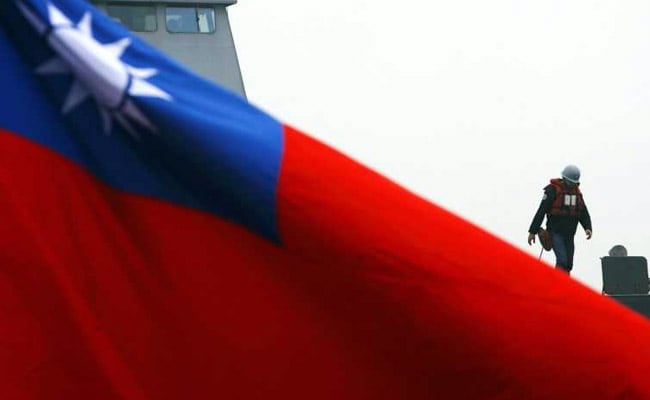
In Taiwan, Hoklo is widely spoken in public, seen as a symbol of the island's distinctiveness (Reuters)Beijing: China's air force has released a propaganda film dubbed into Hokkien, a language strongly identified with Taiwan's pro-independence movement, showing bomber aircraft which have been involved in flying patrols around the self-ruled island.China has been issuing increasingly stern warnings for democratic Taiwan to toe the line, including a stepped up military presence and flying bomber patrols around the island as it seeks to curb what Beijing believes are efforts to push for the island's formal independence.China claims Taiwan as its sacred territory, and the issue of Taiwan is extremely sensitive in Beijing.In the latest salvo fired by China, the air force late on Thursday afternoon unveiled on its Weibo account a Hokkien version of an earlier video called "God of War", which shows H-6K bombers flying over the South China Sea and near to Taiwan."A powerful nation must have comparable forces capable of safeguarding its sovereignty and security," the voice-over says.Hokkien hails from China's southeastern province of Fujian and is the native language of the majority of people in Taiwan, where it is also known as Taiwanese or Hoklo.
It is also spoken by many ethnic Chinese communities in Southeast Asia.Hokkien has little official support in China, where the government has for decades pushed the use of Mandarin, and it is rarely given any public platform.In Taiwan, however, the language is widely spoken in public, including in parliament, seen as a symbol of the island's distinctiveness, as opposed to Mandarin, the official tongue in both Taiwan and China.On Friday, Taiwan's air force released its own much more slickly produced video through its Facebook page, showing Taiwan's US-made F-16s and French Mirage fighters soaring into the air and pilots discussing their combat readiness."We have the confidence and the strength to defend the country's democracy and freedom!" the Taiwan air force says its in introductory remarks for the video.A Taiwan defence official, speaking on condition of anonymity, told Reuters they were aware of China's Hokkien video, but it was too much of a stretch to say their film had been released in response."We've always made films to show the military's good face, as all countries do," the official said.
Thomson Reuters 2018(This story has not been edited by staff and is auto-generated from a syndicated feed.)

 17
17






